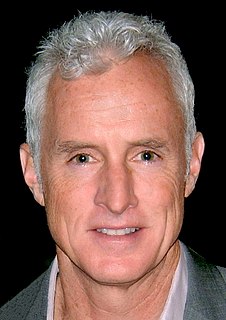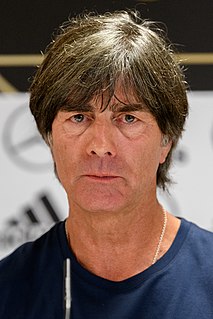A Quote by Corinne McLaughlin
It's important to keep in mind that we never know how something as simple as passing along an idea or asking an important question might impact someone. A first step on the path of being a practical visionary, for example, might begin by having conversations with co-workers, or by simply creating a better atmosphere at work.
Quote Topics
Related Quotes
If [being confident stems from] a self-esteem issue, it's important to embrace the things you might define as so-called imperfections - because something that you might call an imperfection, someone else might find so amazing and so beautiful. It's all in how you embrace yourself, your faults, and your mistakes in life. There's no better way to learn and become a better person than to go through those moments.
It [the scene] can be something given to you and you go, "Ah this is a good idea, I can work with this." Sometimes it cuts right across your instinct and that's when I might resist. Even if the director might be insistent, I think it's very important to say, "Look, I'm not feeling this. I'll try to make it work but I got to let you know."
The first question she was asked was What do you do? as if that were enough to define you. Nobody ever asked you who you really were, because that changed. You might be a judge or a mother or a dreamer. You might be a loner or a visionary or a pessimist. You might be the victim, and you might be the bully. You could be the parent, and also the child. You might wond one day and heal the next.
The most important step of all is the first step. Start something! What if that idea you have in the back of your head is a really good one, one that might end up helping tens of thousands of people? You owe it to the world ot act. Or maybe it will help only a few people: The same advice applies. If you don't do it, you are missing out on something big, and so are the people who could have been helped.
As a citizen I might be well-behaved and have nothing salacious or radical about me, I might be a total bore, but I might suffer somehow if other people are being spied on and blocked from doing important work that might have a collective benefit down the road. The personal doesn't necessarily translate to the social.
Well, you know, I think in conversations with members of the Senate and others, they all recognize that the issue of immigration is important. It's important to our nation, it's important to our public safety, it's important to our security, it's important to our economic well-being moving forward. And it's not something that's going to go away.
If I was going to sum up my approach to this whole mind issue, I would say this: the question is often formulated in a very bad way - for example, by posing the question in terms of stuff. It's better to start with the things we do know: for example, that there are people and other thinking creatures, who have mental capacities. Our next step should be to say something about these capacities.
One of the reasons that metaphor and symbolism are important in books is because they are also important to life. Like, for example say you're in high school and you're a boy and you say to a girl: "Do you like anyone right now?" - that's not the question you're asking. The question you're asking is, "do you like me right now."
































